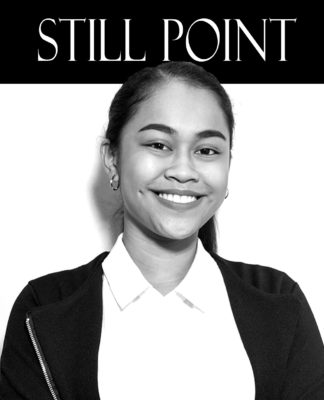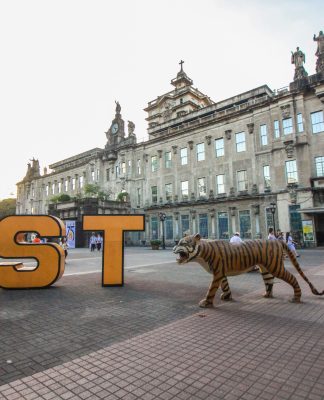THE COLLEGE of Education is optimistic it will produce high-caliber teachers for senior high school (SHS) to meet the Department of Education’s demand for more teachers under the K to 12 scheme.
Education Dean Allan de Guzman said the college was awaiting the new teacher education curriculum proposed by Philippine Normal University that would require education majors aiming to teach in SHS to specialize.
“Students will have to undergo still a four year bachelor’s program [in education] but the first three years after their academic preparation will be for content specialization … After three years, that’s the only time they will venture into a one-year certificate or diploma course for teaching,” he said in an interview with the Varsitarian.
THE COLLEGE of Education is optimistic it will produce high-caliber teachers for senior high school (SHS) to meet the Department of Education’s demand for more teachers under the K to 12 scheme.
Education Dean Allan de Guzman said the college was awaiting the new teacher education curriculum proposed by Philippine Normal University that would require education majors aiming to teach in SHS to specialize.
“Students will have to undergo still a four year bachelor’s program [in education] but the first three years after their academic preparation will be for content specialization … After three years, that’s the only time they will venture into a one-year certificate or diploma course for teaching,” he said in an interview with the Varsitarian.
The one-year teacher certificate course will offer specialization for Grades 1 to 6 (basic education), Grades 7 to 10 (junior high school) and Grades 11 to 12 (senior high school).
Managing students
Alvin Ringgo Reyes, chairman of the college’s teaching education department, said students are trained for the SHS curriculum through their curriculum development subject.
“We also have a course in the fourth year called special topics, where the current issues and trends that are of special interest to students of teacher education could also be tackled. Some of the issues in SHS and K to 12 in general are also discussed in that special topics course,” he said in an interview.
Reyes said training won’t just focus on content preparation, but also on managing and catering to the needs of SHS students.
“You have to problematize the unique personalities of the students who are in Grades 11 and 12 because it is the first time that we are encountering a typology of students like [them],” he said.
“It is only now that [we] are academically, professionally exploring this typology of students, their nature, their needs, the approach that we should provide them,” he added.
Reyes said one of the innovations UST had introduced in the teacher education curriculum was an 18-unit course in education technology, giving students an edge compared with those in other schools that offer only two educational technology courses.
Reyes also said the college was encouraging students to take up specialization in math and science not only to meet the government’s demand but also to help with the academic transition from basic education to the tertiary level.
“We encourage them of course to take their license and higher specialization so that by the time they teach in senior high school, it would not be basic education that they will provide unlike what is provided already by [elementary] and high school,” Reyes said.
Education Secretary Leonor Briones had said vacancies still needed to be filled for math and science subjects due to the high number of enrollees in the senior high school’s science, technology, engineering and mathematics strand.
A total of 195,302 teachers have been hired following the K to 12 transition.
“We have a challenge in hiring math and science teachers. . . [We need] a huge army of teachers, we’ll recruit more,” Briones told members of the House of Representatives’ Committee on Appropriations during the department’s presentation of its budget for 2017.
A master’s degree is a requirement for teaching in senior high school. Graduates of science, math and engineering programs, technical-vocational courses with necessary Technical Education and Skills Development Authority certifications, and practitioners with expertise in specialized learning areas offered by the K to 12 program are also accepted as part-time SHS teachers.
In UST-SHS, there are more than 140 faculty members composed of fresh college graduates, non-tenured and tenured faculty members from the tertiary level of the University, and faculty members from other schools.
The teacher education program in UST has been recognized by the Commission on Higher Education as a center of excellence, and has the coveted Level IV status from the Philippine Association of Colleges and Universities’ Commission on Accreditation.















